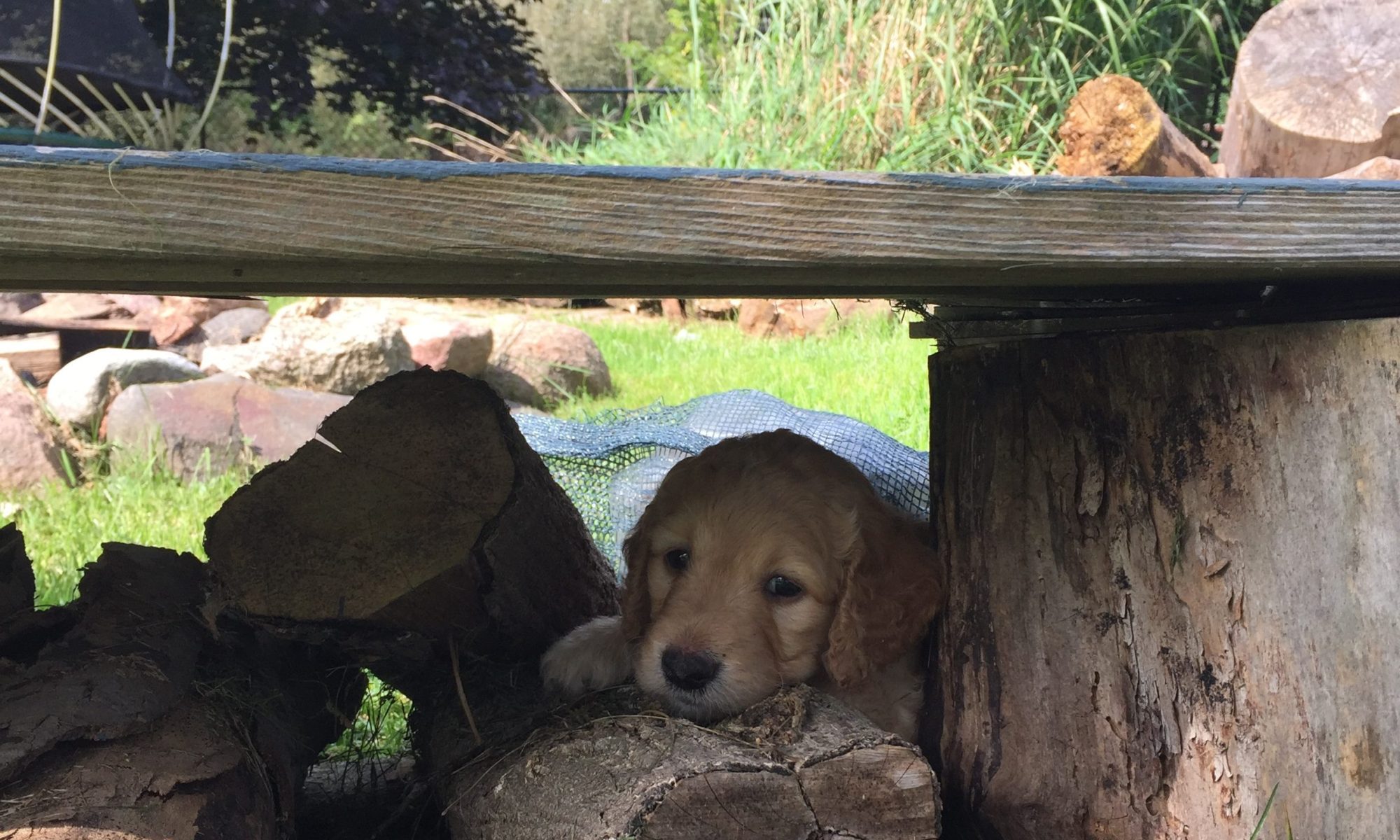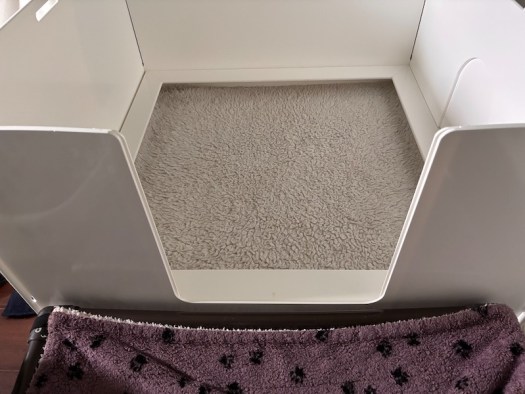
It is hard to believe that Nova’s puppies are already four weeks old. They have made significant progress in such a short time.
So much has happened this past week! The puppies’ milk teeth have come in, their hind legs have grown stronger, and their awake time has slowly increased. The puppies still sleep much of the day, but when they are awake, they socialize with their littermates through play and love to sit on my lap for cuddles.
Potty Training Begins
Last Saturday, on the twenty-first day, potty training began. We divided the whelping box into two sections— a potty area with potty pads and a sleep/play zone with bolster beds. Puppies naturally tend to move away from their sleeping area when they need to go potty. It’s impressive to see the potty pads being used on the very first day of training (see red arrows).


A Visit To The Main Floor
On Tuesday, the puppies visited the main floor, where they interacted with some of my grandchildren. It was an exciting day for humans, adult dogs, and the puppies alike. The puppies enjoyed all the cuddles.
Nova was especially excited to have her babies out of the whelping box. She remained very relaxed as our other adult dogs interacted with the puppies.
The next day, before the puppies were moved, Nova had all the puppies out of her whelping box and walking around the whelping room with her. It was definitely time to make a move.
Moving To The Main Floor
On Wednesday, the puppies moved to the main floor. The puppies are in the Critical Socialization Period, where socializing them involves exposing them to as many new sounds and experiences as possible. This is part of teaching the puppies Emotional intelligence, one of the goals of the Puppy Culture Program.
We placed the puppies in a large container while setting up their whelping box. Nova was surprisingly calm during this move. She is ready to progress to the next stage of motherhood – disciplining her puppies.

Notice the new addition to the puppies’ whelping box. Now that the puppies have had time using the potty pads in their whelping box, it is time for the potty box extension. This extension is lined with a washable pad and grass on top, and we encourage the puppies to use this area when they need to go potty. It is essential to keep their sleep and play area clean. Until the puppies are consistently moving into the potty box to relieve themselves, they will remain in the whelping box most of the day. We will take them out for a little exercise and exploring.

Puppies need to learn they can’t go anywhere. We teach them that “there is an acceptable place to go potty.” Teaching this early helps prevent bad habits from forming, which can be hard to break later. This effort benefits forever families by making housebreaking easier for puppies as they transition to their forever homes.






A Look Back At Week Four
Notice:
- puppies making use of the potty area
- toys have been introduced to the puppies
- starting to nurse standing position
Looking Ahead to Week Five
- Puppies will continue learning to use the potty area
- Start on puppy food
- Awake time will increase as the puppies socialize with each other through play
- Introduce different toys
- Mama will add the invaluable teaching phase to her caring & protecting responsibilities over the next few weeks.
- Lots of cuddles




























